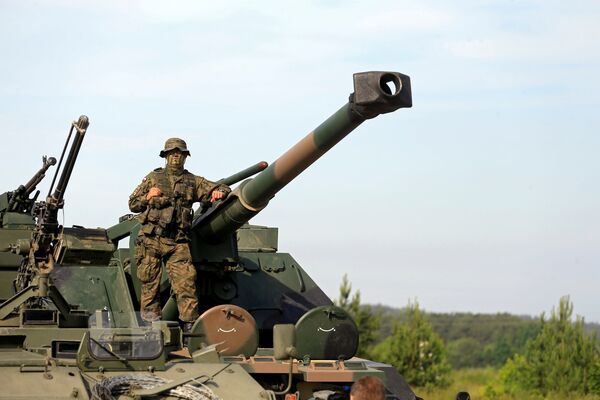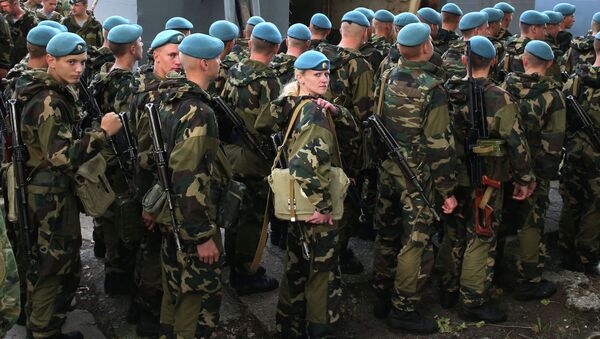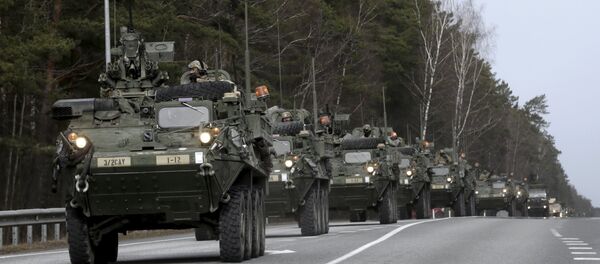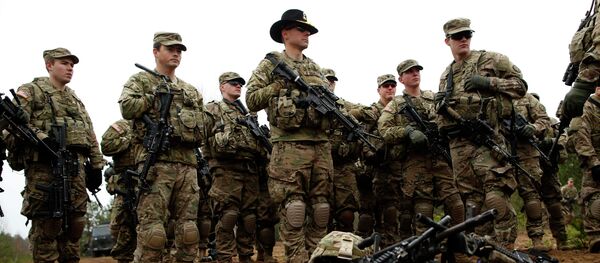NATO does not see any "imminent threat" to any member of the alliance from the upcoming Russian-Belarusian joint drills known as Zapad-2017, Secretary General Jens Stoltenberg said, speaking to journalists in Brussels following a session of the Russia-NATO Council on Thursday.
Noting that the alliance would monitor the drills "closely," the official said that NATO doesn't "see any imminent threat against any NATO allied country" from the drills. The comments echo remarks Stoltenberg made to Ukrainian media earlier this week, where he also stressed that the alliance does not see any "immediate military threat" from the Russian-Belarusian drills.
Commenting on Secretary Stoltenberg's remarks, Alexander Perendzhiev, an associate professor of political science and sociology at the Plekhanov Russian University of Economics, told Radio Sputnik that the openness with which Russia and Belarus are conducting the Zapad-2017 drills makes it very difficult for NATO to present them as a threat to the alliance.
"Russia has provided information on the Zapad-2017 drills, provided information on the number of servicemen involved –both from Russia and Belarus. In such conditions, it's difficult to say that this is a threat," Perendzhiev said.
"We are presently observing an unprecedented level of activity by NATO troops on our borders," Perendzhiev recalled. "Not long ago, the Iron Wolf exercises were held in Lithuania. The Sea Breeze exercises are in progressing in Ukraine; in the meantime, Romania is holding the largest drills in its history, with 30,000 NATO troops participating" in the Saber Guardian 2017 exercises, taking place across Romanian, Bulgarian and Hungarian territory.

"All of these drills are openly directed against Russia. Therefore, I believe that with his words, Mr. Stoltenberg has attempted to tell us: 'see, we said that the Zapad-2017 drills don't threaten us. Now you should admit that our drills do not threaten Russia either.' So you know, a kind of cunning [verbal] maneuver," Perendzhiev concluded.



